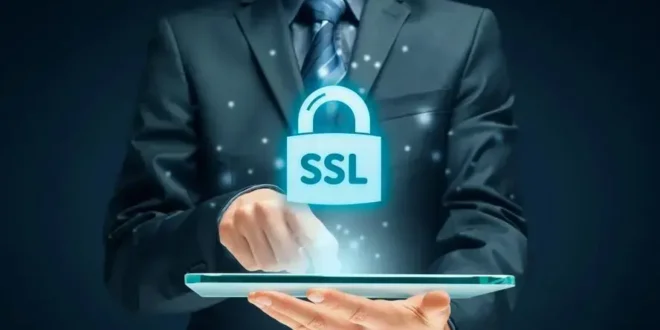Imagine you’re browsing the web, maybe hunting for a great deal on those fancy shoes you’ve had your eye on. Suddenly, your browser warns you about a potential security threat. Yikes!
But fear not, my friend, because that little lifesaver is an SSL certificate working its magic to keep your data safe.
Ah, SSL certificates – the unsung heroes of the digital world. But did you know that there are different types of SSL certificates? Let’s dive into the sea of online security and uncover its unique features.
Domain Validated Certificates
First up, we have the Domain Validated (DV) certificates. They’re like the friendly neighborhood watch, making sure your website is legit. DV certificates validate the domain name, ensuring it belongs to the certificate requester.
Think of it as a digital ID card for your website – a quick and affordable way to secure your online presence. However, DV certificates provide a basic level of security, like a simple lock on your front door. So, if you’re running a small blog or a personal website, DV certificates are a good fit.
Organization Validated Certificates

Next on the list, we have the Organization Validated (OV) certificates. These certificates take things up a notch, offering a touch of extra credibility. OV certificates require more validation, including verifying the organization’s legal existence and domain ownership.
They’re like a sturdy fence around your digital kingdom, keeping out potential intruders. With OV certificates, you can proudly display your organization’s name in the browser’s address bar, gaining the trust of your visitors. If you’re running an e-commerce store or a business website, OV certificates are a worthy investment.
Extended Validation Certificates
Now, brace yourself for the crème de la crème of SSL certificates – the Extended Validation (EV) certificates. These beauties offer the highest level of assurance and trust. With EV certificates, your website gets the VIP treatment, turning the browser’s address bar green and displaying your organization’s name prominently.
It’s like rolling out the red carpet for your visitors, showcasing your dedication to their security. EV certificates undergo rigorous verification, confirming the legal existence, physical address, and domain ownership of the organization. If you’re handling sensitive customer information or running a financial institution, EV certificates are the gold standard.
Wildcard Certificates
Let’s not forget about Wildcard certificates, the Swiss Army knife of SSL certificates. Picture yourself owning multiple subdomains – blog.yourwebsite.com, shop.yourwebsite.com, and so on. Managing individual certificates for each subdomain can be a nightmare.
That’s where Wildcard certificates such as comodo certificate swoop in to save the day! They secure the main domain and all its subdomains, acting as a one-size-fits-all security solution. It’s like having a master key that unlocks all the doors to your digital empire.
Subject Alternative Name Certificates

Last but not least, we have the Subject Alternative Name (SAN) certificates. Imagine you have multiple domains and want to secure them all with a single certificate. SAN certificates come to the rescue!
They allow you to protect multiple domains, up to a specified limit, with a single certificate. It’s like having a magic wand that casts a protective spell over all your domains, ensuring they’re safe and sound.
Unified Communication Certificates
Oh, and how can we forget about the Unified Communications certificates (UC certificates)? These bad boys were designed specifically for Microsoft Exchange and Office Communications servers.
UC certificates are the smooth operators, ensuring seamless communication and secure collaboration within your organization. They’re like the secret agents of SSL certificates, encrypting your emails, instant messages, and voice calls behind closed doors.
Public Key Infrastructure Certificates
Now, let’s delve into the magical world of Public Key Infrastructure (PKI) certificates. PKI certificates are like the sorcerers of encryption, employing a complex system of keys, digital signatures, and certificates to establish secure connections.
They form the backbone of online security, creating a trust network that allows for secure transactions and communication across the digital landscape.
Extended Validation Code Signing Certificates

And let’s not overlook the beauty of Extended Validation Code Signing (EV Code Signing) certificates. These certificates take code signing to a whole new level, with the green address bar and your organization’s name shining bright. They’re like the majestic peacocks of SSL certificates, commanding attention and instilling confidence in users that your code is safe to run.
They add an extra layer of trust by digitally signing your code, assuring users that it hasn’t been tampered with and comes from a reliable source. It’s like adding an invisible seal of authenticity to your software.
So How Do You Choose the Right One?
Now that we’ve explored the diverse world of SSL certificates, it’s important to choose the right one for your needs. Consider the level of security you require, the nature of your website, and the trust you want to instill in your visitors. Remember, online security is no joking matter. It’s like fortifying the walls of your digital fortress, safeguarding your precious data from the lurking threats of the online realm.
Now, we know what you’re thinking – “This SSL certificate talk is mind-boggling!” But fear not, my friend, because there are trusted Certificate Authorities (CAs) out there who are the guardians of SSL certificates. These CAs, such as Let’s Encrypt, Digicert, and Comodo, ensure that SSL certificates are issued and managed securely. They’re like wise old owls, keeping a watchful eye on the digital forest and ensuring that only the deserving websites receive the coveted SSL seal of approval.
Conclusion
In conclusion, SSL certificates are the unsung heroes of online security, providing the much-needed encryption and trust that keep our digital lives intact. From the humble Domain Validated certificates to the prestigious Extended Validation certificates, each type brings its unique features to the table.
Whether you’re a small blogger, a thriving business owner, or a master of multiple domains, there’s an SSL certificate tailored to your needs. So, my friend, don’t leave your virtual front door wide open – invest in an SSL certificate and lock those cyber threats out for good. Your website and your visitors will thank you for it. Stay secure, and happy browsing!
 Hi Boox Popular Magazine 2024
Hi Boox Popular Magazine 2024



